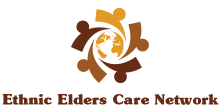Top Tips & Advice for Caregivers
1. Obtain a comprehensive physical and mental health diagnostic evaluation for your loved one.
Not every medical facility or doctor is has the capability to perform complete diagnostic assessments for elders with memory disorders. Find an institution that specializes in the diagnosis of Alzheimer’s disease and related disorders.
2. Find out all you can about Alzheimer’s disease and other memory disorders to work effectively with health care and social service workers.
Many people have questions, fears and misconceptions about memory loss and dementia in the elderly. Caregivers need to constantly fight denial and stigma associated with dementing disorders. Education and understanding are essential for effective, supportive caregivers. Caregivers with greater knowledge about dementing illness and the demands of caregiving, are better able to seek and utilize professional help. Knowledgeable caregivers can learn more effective communication strategies and better approaches to managing the older people with dementia.
3. Cultivate a supportive, collaborative relationship with your elder’s primary care physician.
The primary care provider (physician or nurse practitioner) plays a critical role in your elder’s access to appropriate medical and social services. Your primary care providers should optimally have either special training or special interest in the care of the elderly. Healthcare providers working with the elderly requires unique If you find that you can not work effectively with your provider, be prepared to transfer your elders care to a different health care provider.
Be sure you have the names and phone numbers for your elder’s medical providers, insurance information and current medications written down and easily accessible
Over the course of living with dementing disorders, many elders and their caregivers may benefit from consultation with a geriatric psychiatrist. Geriatric psychiatrists are particularly knowledgeable about the management of dementia and depression in the elderly. Geriatric psychiatrists specially trained to diagnosis and treat mental health problems older people and assist families in improving the quality of life in elders.
4. Find and make use of community based resources.
Many communities have an extensive array of services available to elders including Alzheimer residences, adult day services, support groups, home health care, case managers and more.
5. Organize and plan for current and future financial and legal matters for the elder and his caregivers.
The elderly usually has many legal and financial matters that need to be organized. The elder should be encouraged to participate in legal and financial planning for as long as he/he is mentally clear enough to make reasonable decisions. People with dementia eventually will need assistance making important decisions about their medical care, finances and management of assets. Caregivers should consider working with an attorney (preferably one with experience in in Elder Law) and discuss numerous crucial issues including :
Power of attorney- The elder designates someone to make decisions when he is no longer competent
Power of attorney for health care The elder designates someone to make decisions about his medical care when he is no longer competent
Living will – The elder outlines his preferences about the use of an individual’s decisions about artificial-life support apparatus and procedures..
Will The elder creates this document which designates the person who at the time of the elders death will manage his estate and distribute his assets to the beneficiaries.
Guardianship/conservator ship The elder identifies a particular person to gain legal control over the elders business and financial matters.
6. Cultivate a network of family ( including children and teenager), friends and other caregivers to help out.
You’re not in this alone! Don’t be afraid to ask family, church members and friends to relieve you from caregiving at least a few hours per week. Many people decide to use community resources such as: respite care, adult day care, home health, meals programs, homemaker services, mental health services. Consider attending Alzheimer support groups where you can network with other caregivers, share your experience with people who coping situations similar to yours. Work with your network of helpers to develop strategies to family and healthcare providers; and assist with making decisions about the care of your loved one.
7. Give yourself a break.
In addition to getting part time help from family and friends, consider a formal respite from either an Adult Day Health Program or time limited 24 hour care from a nursing home. Regularly set aside time to calm your mind and body through prayer, meditation, exercise or counseling.
8. Make your own physical and mental health a top priority!
The only way you can be a good caregiver is to be physically and mental in tip top condition. Be sure that you are getting adequate amounts of sleep, exercise and nutrition. Try to pace your self and reduce stress or conflict in your life. Be sensitive to signs that you are getting depressed and “burned out”. Consider mental health treatment if depression, anxiety or sleep problems persist. See your doctor regularly and take care of your own health. Always set aside time for people and activities that help you laugh, relax and enjoy life.
